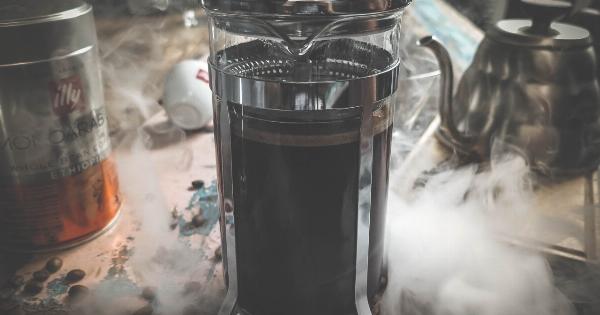Working night shifts can be a struggle, especially when you are used to sleeping during those hours. However, there are ways to survive the night shift, and one of the most popular solutions is coffee.
In this article, we will discuss the different ways to make the most out of your coffee during night shifts and how to minimize the adverse effects of consuming too much caffeine.
Understanding the Night Shift Lifestyle
The night shift lifestyle is not for everyone. It requires a sleep schedule change, which can negatively affect an individual’s physical and mental health.
Many people who work the night shift have reported an increased risk of insomnia, depression, obesity, and heart disease. The sleep-wake cycle gets disturbed, and the body’s natural rhythms are challenged.
Why Coffee Helps
Coffee is a popular companion for those who are working night shifts. It helps in keeping you awake and alert during the crucial working hours, especially when drowsiness kicks in.
Coffee contains caffeine, which is a natural central nervous system stimulant. Caffeine blocks the brain’s adenosine receptors, which signals the brain to rest and relax. It increases the dopamine levels in the brain, which can improve your mood, alertness, and concentration.
How to Drink Coffee during Night Shifts
Drinking coffee can help you become more alert and focused, but it is essential to drink it in moderation. Too much caffeine can lead to adverse effects such as dehydration, anxiety, irritability, and insomnia.
The recommended caffeine intake for adults is around 400mg per day, which is equivalent to four cups of coffee. Here are some tips on how to consume coffee effectively during night shifts:.
1. Limit Coffee Consumption after Midnight
It is best to limit your coffee intake after midnight and switch to other beverages such as water, tea, or juice.
Caffeine has a half-life of around six hours; therefore, consuming it after midnight can interfere with your quality of sleep and your ability to fall asleep once you get home.
2. Drink Water in Between
Drinking water in between your coffee consumption can help you stay hydrated and prevent the adverse effects of consuming too much caffeine. Caffeine is a diuretic, which means it causes you to urinate frequently, leading to dehydration.
Drinking water can also help in flushing out the caffeine from your system.
3. Do Not Add Sugar or Creamers
Sugar and creamers can add calories to your coffee, making you gain weight. In addition, sugar can make you feel fatigued after a short period. It is best to drink your coffee black or with a non-dairy creamer and artificial sweeteners.
Alternatives to Coffee
Coffee is not the only solution to keep you awake during night shifts. Other alternatives can help you stay alert and focused without relying on caffeine. Here are some alternatives:.
1. Drink Green Tea
Green tea contains L-Theanine, an amino acid that promotes relaxation without drowsiness. It can help in reducing anxiety and increasing your mental focus and alertness. It also contains caffeine, but in lower amounts than coffee.
2. Take a Power Nap
If you can find the time, taking a power nap during your break can do wonders for your alertness and cognitive performance. A nap of around 20 to 30 minutes can help in reducing the effects of sleep inertia, improving your mood, and reducing fatigue.
3. Move your Body
Doing some physical activity during your break can help in increasing your energy levels and reducing fatigue. Going for a short walk, doing some stretches, or practicing yoga can be effective in improving your mental and physical health.
Conclusion
Coffee can be an effective solution for those who work night shifts, but it is essential to consume it in moderation and to follow some tips to prevent any adverse effects. Alternatives to coffee can also be effective in keeping you alert and focused.
A good night’s sleep before the shift and a healthy diet can also benefit you in working effectively during the night.































